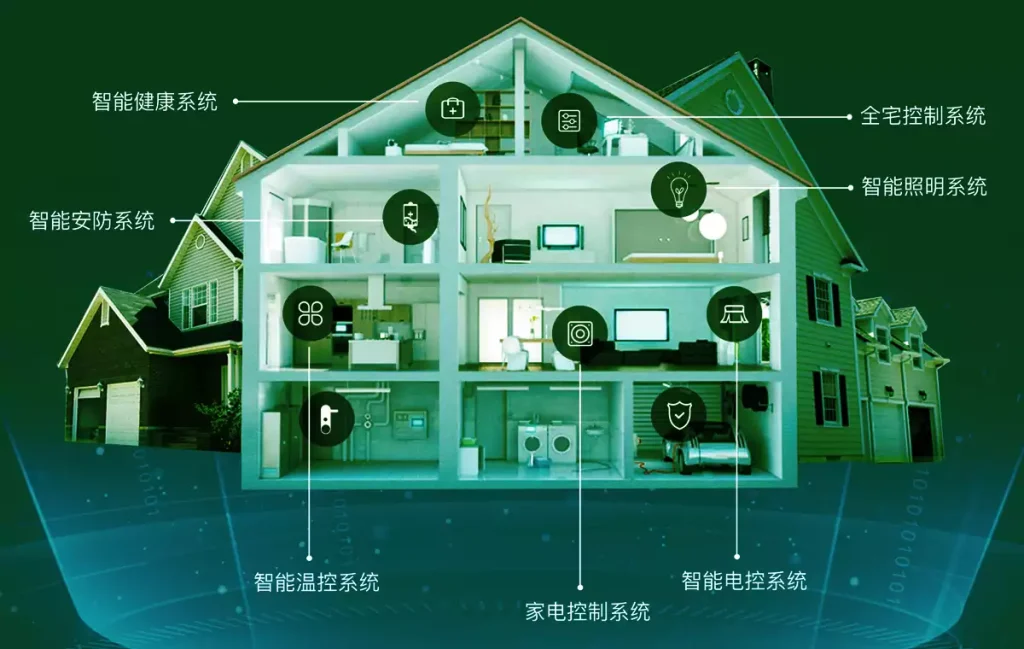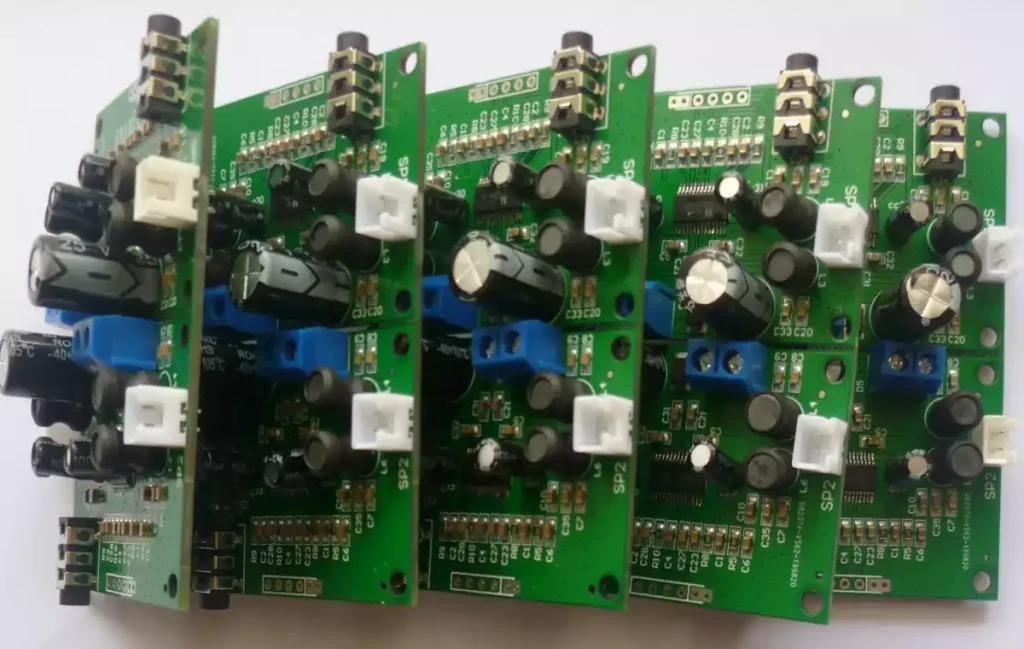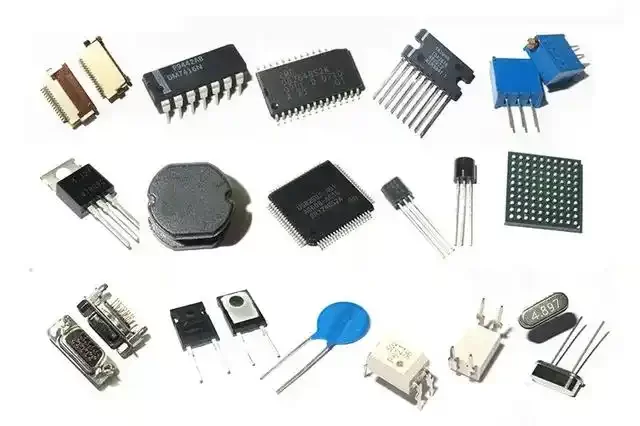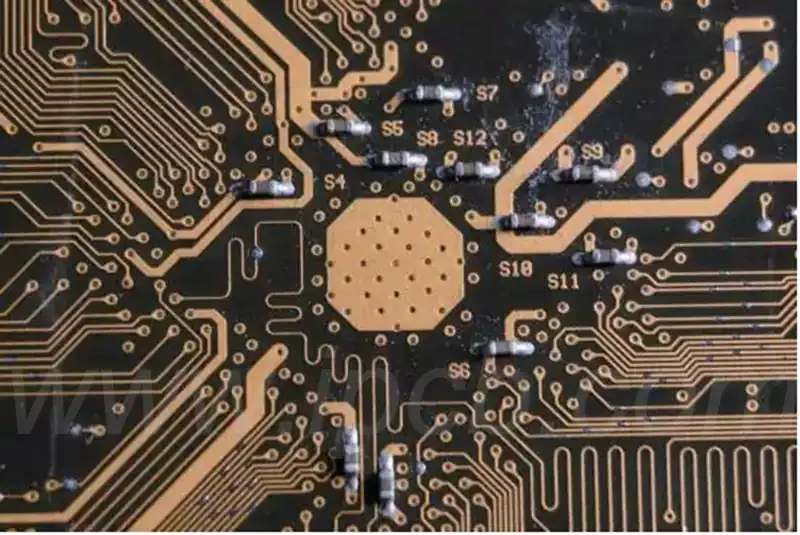Smart home is a residential facility management system that utilizes comprehensive cabling technology, network communication technology, security and prevention technology, automatic control technology, and audio and video technology to integrate home related equipment and build a centralized and intelligent control system. As an important engine for the third liberation of household chores, smart homes have broad market prospects and huge consumption potential.
The upstream of the smart home industry chain includes hardware, software, solutions, industrial design, etc; The midstream includes intelligent home appliances, intelligent security, intelligent lighting, intelligent robots, intelligent hardware, and other downstream channels that ultimately reach end consumers through e-commerce platforms, application centers, real estate companies, offline stores, home decoration companies, and other channels.
With the rapid development of various emerging technologies such as 5G, big data, cloud computing, and AIoT, the smart home industry and technology are constantly iterating and updating, ushering in multi-level upgrades. More and more smart devices are entering people’s daily lives, and the concept of smart home has penetrated into people’s thinking. Nowadays, smart home has reached a high level of technology. Not only can it understand voice commands, but it can also enable various smart devices to spontaneously enter a seamless and automatic execution of scene tasks without the need for commands through the setting of linked scenes.
In this trend, smart home has become one of the high-frequency design projects for PCB engineers. It can be said that if one does not know how to design smart home, they are not a qualified PCB engineer. The reason why a smart home is called a smart home ultimately depends on the control system. Taking a sweeping robot as an example, this product not only involves common RF, radar modules, infrared detection, USB 2.0 and other core circuits, but also ensures the overall unity of subsequent hardware and software. Attention should also be paid to the PCB design, PCB layout, and wiring of 2-layer PCBs and 4-layer PCBs to ensure that the product can adapt to subsequent functional additions and deletions.

Nowadays, smart home systems will be developing towards greater intelligence, complexity, and diversity, which requires high-performance central control devices to coordinate. High end PCBA manufacturing technology can achieve higher integration of processors, memory, and sensors, making smart home central control devices smaller and more efficient.
A highly integrated central control system can process more data and achieve more functions, providing users with a more convenient and intelligent home experience.
With the continuous development of various sensor technologies, smart home devices are equipped with various sensors to monitor various aspects of data such as environment and user behavior. PCBA technology will play a crucial role in fusing various sensor data and analyzing it through intelligent algorithms.
Through data processing using PCBA technology, smart home systems can better understand user needs, predict user behavior, and achieve intelligent automation control. For example, when the system senses that the user is leaving home, it can automatically turn off electrical equipment to achieve energy conservation; When the system senses that the indoor temperature is too high, it can automatically start the air conditioning to provide a comfortable environment.
Security and privacy issues have always been a concern in smart homes. Through highly integrated PCBA technology, smart home devices can encrypt, store, and transmit data to prevent data leakage;
At the same time, PCBA technology can also achieve the integration of biometric technology, enhancing the security of devices. For example, future smart home systems can recognize the identity of family members through the built-in biometric sensors in PCBA, ensuring system security and avoiding unauthorized personnel operations.

With the continuous development of technology, smart homes have become a part of modern life. Nowadays, major manufacturers have come up with smart home solutions, but no matter what solution, it requires products manufactured through PCBA technology to achieve functionality.
As a one-stop PCBA manufacturing service provider, iPCB has rich manufacturing experience in the field of smart homes and has manufactured smart home devices such as smart meters, environmental monitoring modules, intelligent control centers, and more for multiple smart hardware enterprises. iPCB has been engaged in one-stop PCBA manufacturing services for many years, helping customers achieve rapid development.



